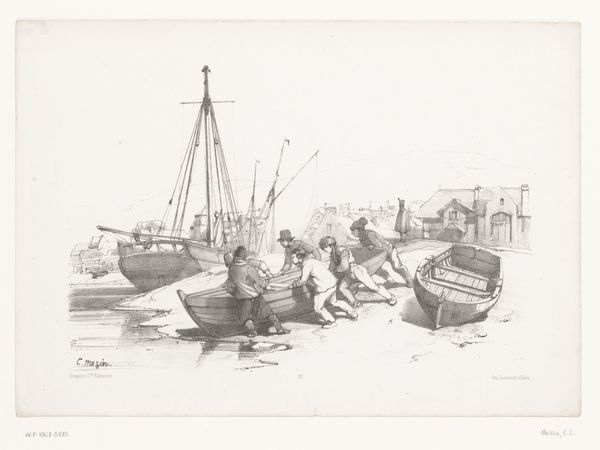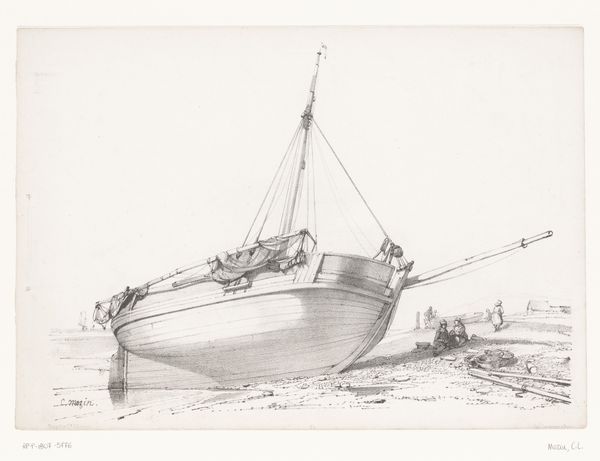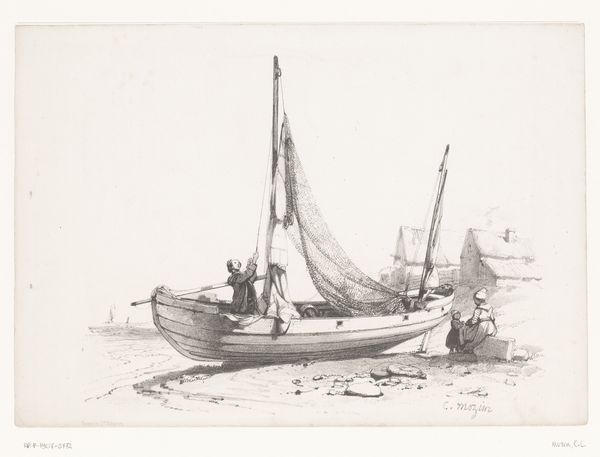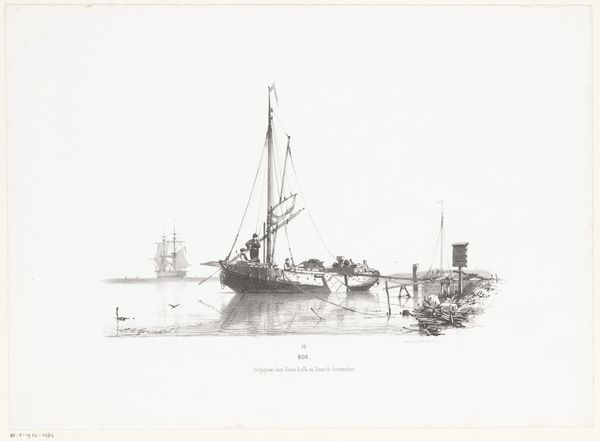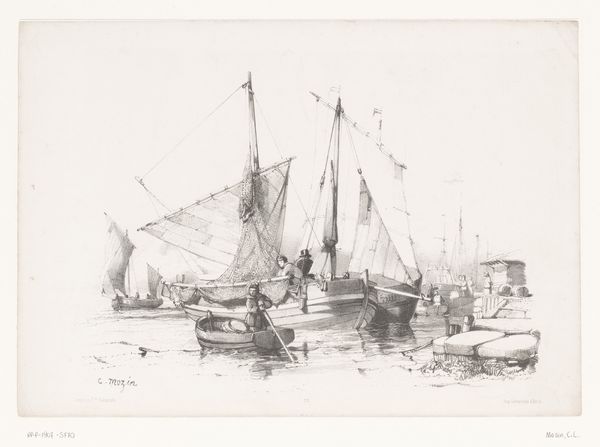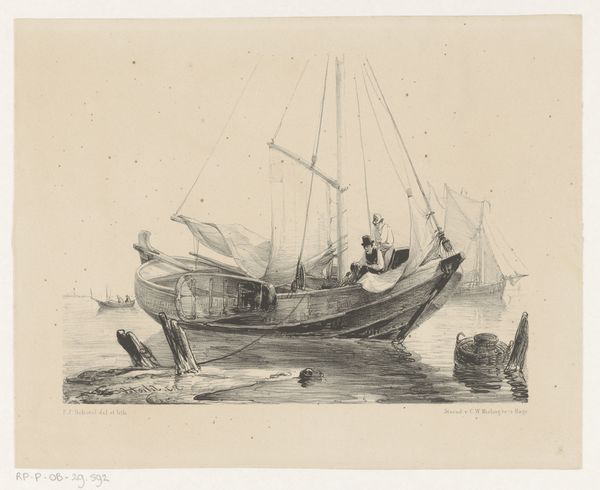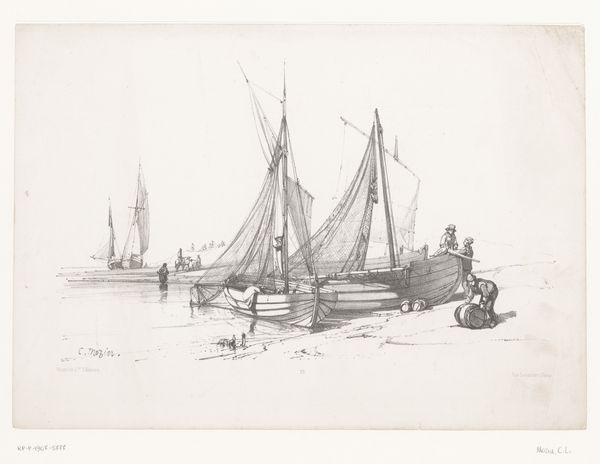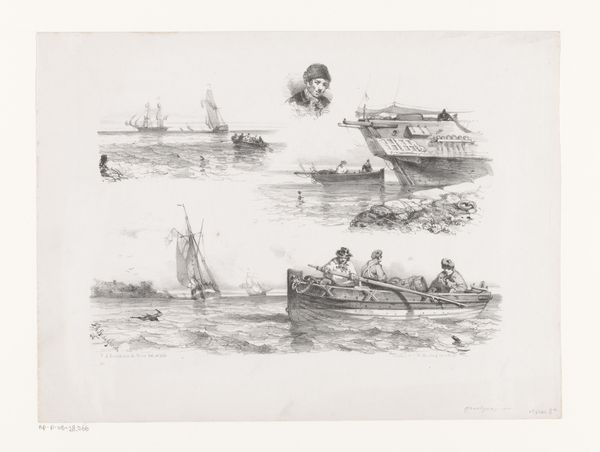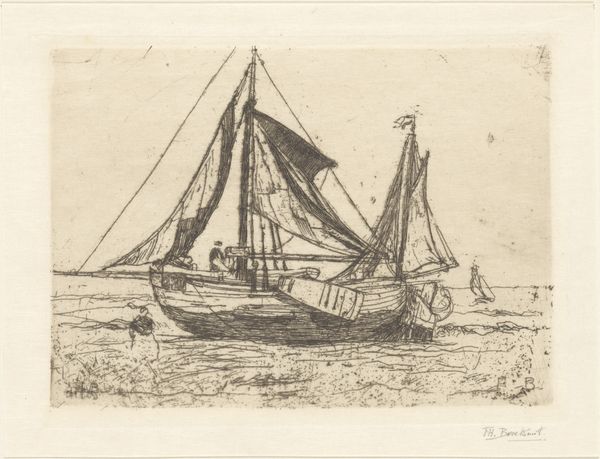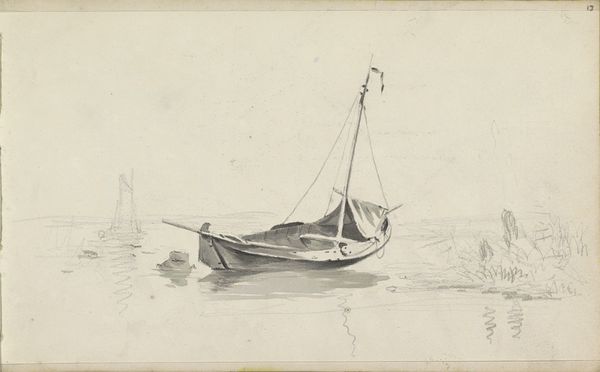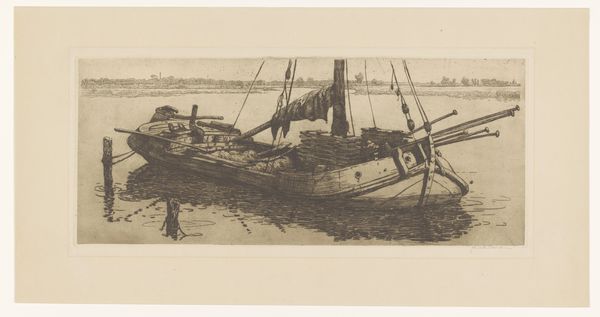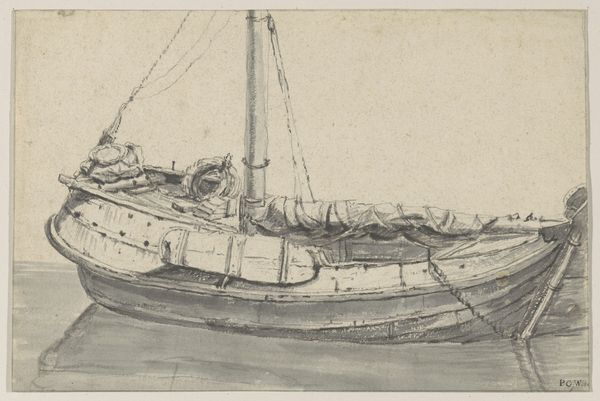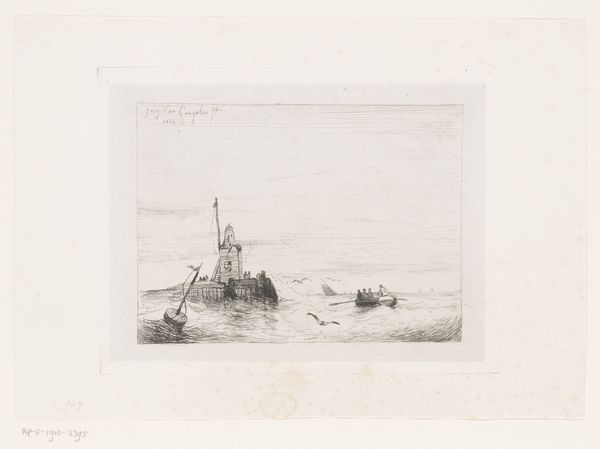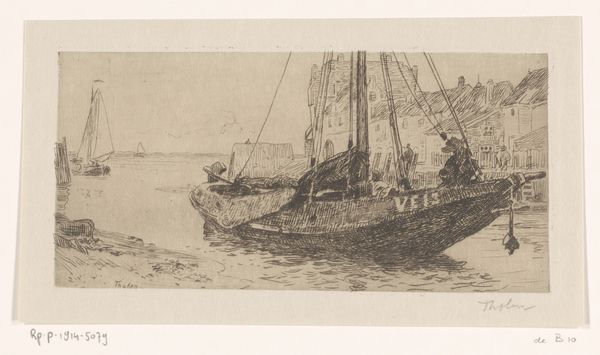
drawing, print, etching, ink, pen
#
drawing
# print
#
pen sketch
#
etching
#
landscape
#
ink
#
line
#
pen
Dimensions: height 214 mm, width 306 mm
Copyright: Rijks Museum: Open Domain
Curator: Charles Louis Mozin created this delicate piece, "Zeilschip in het water," sometime between 1850 and 1884. It’s an etching, a print made with pen and ink—mostly monochromatic, offering fine lines that build a compelling scene. Editor: My first thought is 'ethereal dreamscape' mixed with a sailor's busy morning. There’s something unfinished and ghost-like, especially in the textures of the water around this old, tired vessel. Curator: Exactly. Mozin presents an era when sailing ships were the backbone of global transport. This specific ship shows a history of work, right? We get hints of the broader narrative of maritime exploration, colonialism, trade... everything intertwined with the age of sail. Editor: Right! There are folks bustling around the ship but the muted tonality gives everything a gentle, contemplative mood. The etching technique... the cross-hatching, the open spaces. How do you think he's commenting on maritime power through that technique? Curator: I wonder if he aims for critique directly. It seems Mozin might focus on illustrating the everyday realities of seafaring and labour. His choice of lines does not imbue a heroic presence as you might think a marine painting should... there is softness, an intention for peace even as men work around a potentially dangerous ship. Editor: Interesting perspective. I guess it begs the question – for whom did he create this? Was this a commissioned work or for display at galleries? I like that idea: seeing it as documentation rather than glorification. Curator: Prints had wide distribution possibilities. More affordable and reproducible than a unique painting. It puts the picture within the public realm where diverse voices might discuss its deeper meanings. It feels like a peek into a world on the brink of change as steam power emerges. Editor: A beautiful testament to human industry framed through calm acceptance. Maybe not just glorification but an observation of this old tired work vessel, something valuable in itself. Curator: And maybe by stripping away excessive idealisation, he let us actually see better, not just something but something true.
Comments
No comments
Be the first to comment and join the conversation on the ultimate creative platform.
